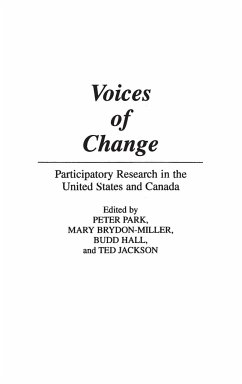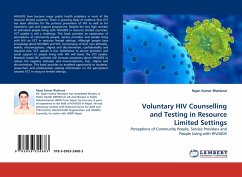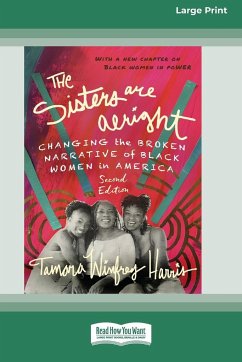
Empowering Settings and Voices for Social Change

PAYBACK Punkte
39 °P sammeln!
Empowering Settings and Voices for Social Change combines a focus on understanding social settings as loci for empowering intervention with a focus on understanding and giving voice to citizens. The volume illuminates advances in theory and method relevant to changing a broad spectrum of social settings (including programs, organizations, institutions, communities and social policy) from a strengths-based perspective. Three cross-cutting concepts - a strengths-based approach to research and social action, empowerment, and narrative research methods - serve as integrating and foundational themes. Part I takes up issues of setting processes and outcomes of influence, research methods, and implications for setting and community change efforts and social policy. Questions addressed in Part I include: What is the nature of current and future conceptualizations of social settings? What are the actionable features in social settings? How can settings that place a premium on empowerment and promotion be created or restructured? What are the organizational characteristics of empowering community settings? What mechanisms mediate the impact of these characteristics on individual well-being? Part II examines how action scientists have sought to understand and amplify the voices of those individuals and communities who serve as the focus of their research and social change actions. Part II authors explore the role of institutional beliefs, community narratives, and personal stories in recovery from serious mental illness; trace the cultural contours of "mental health" among the Gros Ventres of the Fort Belknap Indian reservation; examine youth voice in the juvenile justice system, illuminating the loss of focus on individualized justice and accountability to youth; and, outline ways in which community narrative can enrich culturally anchored work in prevention and public policy. Finally, chapters in Part III seek to situate the rest of the volume's chapters in the context of decades of work on empowering settings, giving voice and social change.













